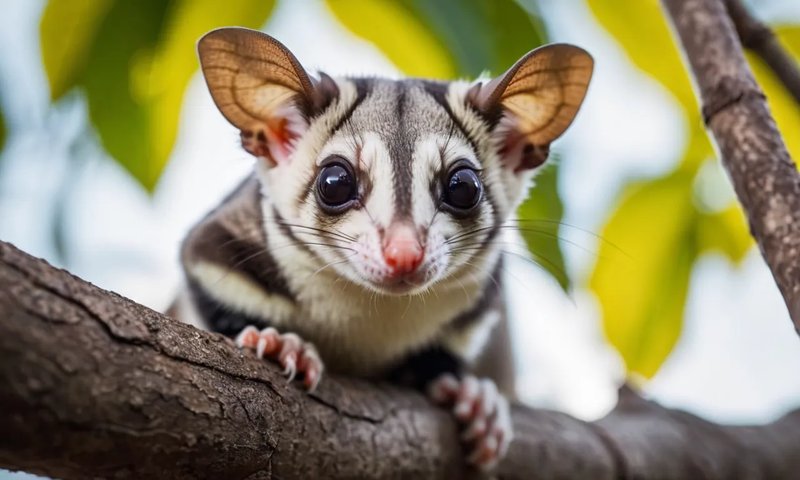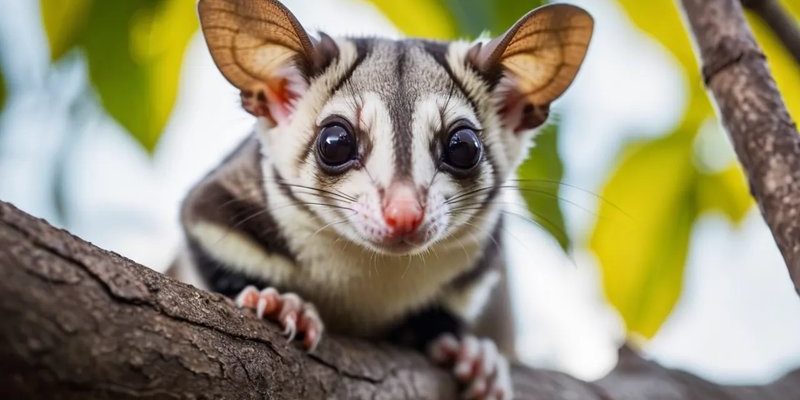
This question can feel a bit like navigating a maze. Each state has its own set of laws and regulations regarding pet ownership, especially for exotic pets like sugar gliders. In this article, we’ll explore the legality of sugar gliders across the United States, helping you understand where they can be your cuddly companion and where they can’t. Think of this as your friendly guide through the world of sugar glider ownership.
Understanding the Legal Landscape
Sugar gliders are considered exotic pets, which means they aren’t conventional pets like hamsters or goldfish. Because of this, their ownership is regulated differently in various states. In some places, you might need a special permit to keep one, while in others, they might be outright banned. Regulations can change rapidly, so it’s key to stay informed.
Here’s a simple breakdown of how laws can vary:
- Some states allow sugar gliders without any restrictions.
- Others may require permits or specific enclosures.
- In a few places, owning a sugar glider is completely illegal.
By understanding these legal distinctions, you can avoid any nasty surprises down the road. After all, no one wants to have a conversation with a local wildlife officer about their new furry friend!
States Where Sugar Gliders Are Legal
In many states, sugar gliders are perfectly legal to own. States like Florida, Texas, and California have relatively relaxed laws regarding exotic pets. For instance, in Florida, you can have a sugar glider as long as you adhere to basic care guidelines. Here’s how it typically works:
1. No Special Permit Required: Most states that allow sugar gliders don’t ask for permits. However, always check local regulations!
2. Basic Care Standards: Owners are generally required to provide proper care, including space, diet, and healthcare.
3. Local Nuances: Some cities or counties might have their own rules, so double-checking local ordinances is a smart move.
In these friendly states, owning a sugar glider can be a smooth process, as long as you meet the basic care standards and understand the specific requirements.
States With Restrictions
While many states welcome sugar gliders with open arms, a few throw a wrench in the works. For example, you might need a special permit to own a sugar glider in states like New York and New Jersey. Here’s what you should know if you’re considering adopting in these areas:
– Permits: In some states, you’ll need to apply for specific permits, which can involve inspections or proof of adequate care.
– Detailed Care Instructions: Regulations may include guidelines on how to house them, what they can eat, and any necessary veterinary care.
– Enclosure Requirements: Some states may stipulate specific cage sizes or enrichment needs to ensure the animals’ wellbeing.
Navigating these regulations can feel like threading a needle, but understanding the necessary steps can pave the way for a successful adoption.
States Where Sugar Gliders Are Illegal
Unfortunately, not all states are on board with sugar gliders as pets. For example, in Hawaii and California, these adorable creatures are categorized as restricted or invasive species. Here’s how it generally breaks down:
– Bans on Ownership: In states like Hawaii, owning sugar gliders is illegal due to concerns about them impacting local wildlife.
– Strict Enforcement: Violating these laws can result in hefty fines or the confiscation of your pet, which can be heartbreaking.
– Alternative Options: If you live in a strict state, consider looking into other pets that are legal and equally fun.
It can be disappointing to learn that sugar gliders aren’t allowed, but it’s always best to follow the law and protect local ecosystems.
Why Legal Considerations Matter
You might be wondering why it’s so important to know the legal status of sugar gliders in your state. Here are a few reasons:
– Prevent Legal Issues: Owning a pet illegally can lead to fines, the removal of the animal, or even criminal charges. It’s just not worth the risk!
– Ensure Animal Welfare: Understanding the laws helps ensure that you can provide a proper environment. Sugar gliders have specific needs that must be met to thrive.
– Community Impact: Many areas have laws to protect local wildlife. By adhering to these regulations, you’re helping to ensure the health of native species.
Ultimately, being informed means being a responsible pet owner.
How to Check Your State’s Laws
Knowing where to look for legal information is crucial. Here’s how you can ensure you’re up to date:
1. State Wildlife Agency Websites: Most states have official wildlife agencies with comprehensive information on exotic pet ownership.
2. Local Ordinances: Check your city or county government website, as they may have specific regulations that differ from state laws.
3. Exotic Animal Forums: Online communities and forums can be a great source of up-to-date information and experiences from current sugar glider owners.
By doing a bit of research, you can easily find the information you need to make informed decisions.
In the end, whether or not you can legally own a sugar glider depends on where you live. Some states welcome these little creatures with open arms, while others have strict regulations or outright bans. It’s essential to take the time to understand your state’s laws, not just to stay out of trouble but to ensure you can provide a happy, healthy home for your future pet.
Remember, being a responsible pet owner starts with being informed. So, before you make any decisions, check the regulations in your area. That way, both you and your future sugar glider can glide into a happy life together!

